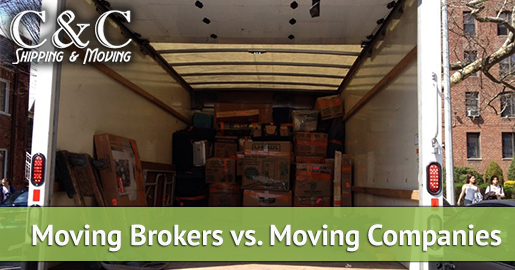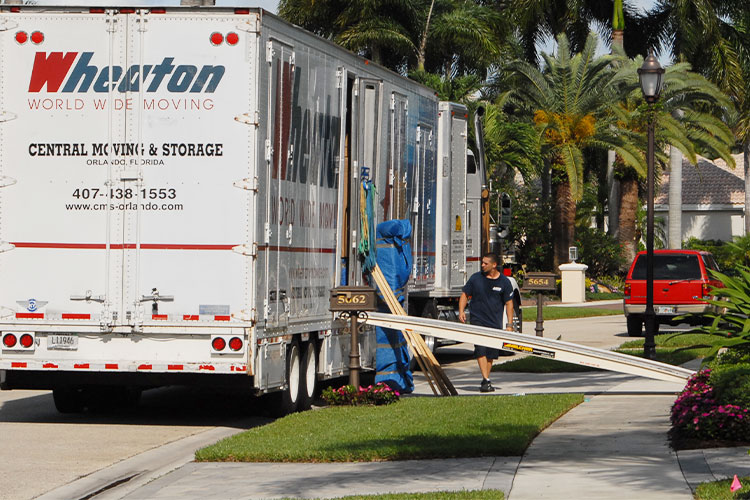What Is the Difference Between Moving Brokers and Moving Companies?
If your clients are not doing their move themselves, there are two ways they can hire a moving company to do their move. One way is to hire a moving broker and the other is to hire a moving company.
Here are some of the differences between them.
Moving Broker
Moving brokers are middlemen between the person who is moving and moving companies. The brokers are not the actual movers and typically do not own trucks or moving equipment or have a professional moving staff. They provide the convenience of finding a moving company and are sales people who “sell” the move.
Typically, moving brokers give estimates for a move either over the phone or on the Internet and collect a fee from the person who is moving. The brokers then bid out the job to moving companies based on the estimate. The benefit of using a moving broker is that the move could be accomplished cheaper than hiring a moving company directly.
However, there are some risks involved with using a broker. There is the possibility that the job might not be accepted by a moving company, usually because of a low estimate, availability or resources, and the customer would be left without a mover on moving day. In addition, unlicensed or uninsured movers might be hired for the job or the moving company might charge extra fees once they see the totality of the job. Interestingly, the brokers do not accept any liability for the acts or omissions of the moving company hired.
The Federal Motor Carrier Safety Administration (FMCSA) is working to provide stronger consumer protections when using a broker. Therefore, moving brokers must:
- Be registered with the FMCSA.
- Provide the customer with the FMCSA Your Rights and Responsibilities When You Move booklet and the Ready to Movebrochure.
- Provide a list of the moving companies they use.
- Use only movers that are registered with FMCSA.
- Have a written agreement with movers they use.
- Base binding or non-binding estimates on the tariff of the mover that will transport the shipment.
- Reference in their advertisements their physical business location, motor carrier number and their status as a broker that does not transport household goods but arranges for this service.
- Have the mover that is transporting the shipment perform a physical survey of the household goods to be moved if they are within a 50-mile radius of the mover or its agent’s location, whichever is closer. It is the client’s option to waive this requirement.
Moving Companies
Moving companies are the firms that do the actual move. They own trucks and moving equipment and have a professional moving staff. Moving companies will come to the house and give an estimate for performing the move, which will most likely be more accurate than the estimate from a moving broker is. The price will normally depend on the weight and amount of the items and the distance of the move.
While making an agreement with a moving company might provide more confidence with a move, since the company can be held liable for anything that goes wrong with a move, there are additional fees to consider when using professional movers, including extra valuation coverage for the goods; additional services, such as preparing appliances for the move or moving a piano; and extra charges, such as expedited services and long-haul charges.
Regardless of whether clients choose a broker or a moving company to perform a move, they should always research online the credibility and reputability of the firm by checking with the Better Business Bureau and the FMCSA.
There are benefits and risks with both moving brokers and moving companies; therefore, it might be a good idea to provide your client a list of those firms that you have worked with before and trust.





